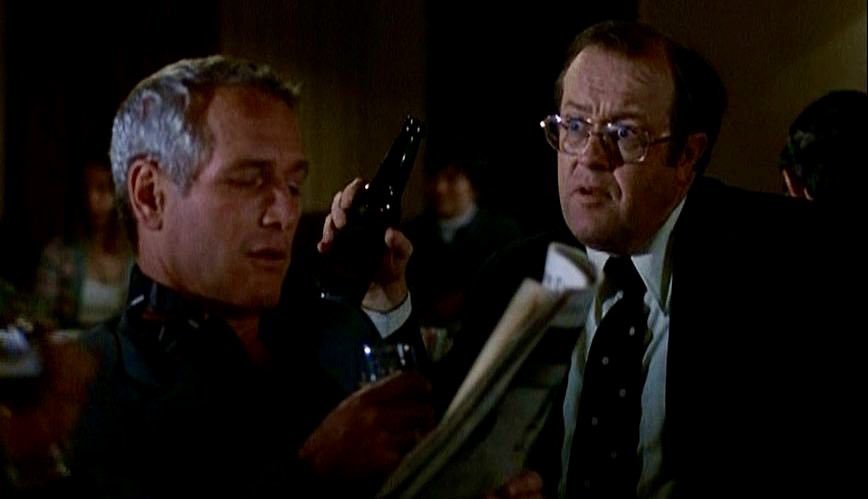Trying to capture the spirit of the thing: M. Emmett Walsh (1935-2024)

The great character actor died earlier this week:
Harrison Ford walks through Union Station, doubling as police headquarters, as the camera comes to meet him, disappearing behind a dusty, trash covered roof, and then finding him at the open door to a man’s office. Ford’s been picked up on some important errand, the kind that interrupted his lunch in the teeming Chinatown eatery he frequents. A man like this isn’t easily intimidated but he knows something’s up or he wouldn’t have broken his lunch date with himself to see to it. Just who does he owe such tormented allegiance? Who’s waiting for him at the end of this cab ride? He’s pressed into a shirt that’s been washed both too much and too little, his mustache seems uneven in the heavy shadows, and his eyes are sunk into his face so differently your brain conjures Picasso’s hand at a canvas. They light up in the dark, musty office. His expression changes every time the camera returns to him. He smiles like an infant when he sees Ford, the bright open features parting his five-o-clock shadow like the Red Sea. Ford shoots him a dirty look, which prompts this: “Don’t be an asshole, Deckard. I’ve got four skin jobs walking the streets.” Suddenly his face is closed, steely and round, an unmarked can of survivalist rations. This man is eating the scene alive and Ford along with him, his voice nagging and echoing like a screen door with a rusty hinge. “I need your magic,” he says. And, like that, “Blade Runner” has properly begun. There is no magic like a performance by M. Emmett Walsh.
[…]
James Caan wanders up to a bar in Karel Reisz’s “The Gambler” and finds a nervous man with thinning hair, big glasses, and a constant shake. The two have money on the same game and watch the result on TV together. Walsh’s gambler is a man unafraid of projecting his desperate, friendless, losing energy into the world. Caan wants to believe himself better than this poor dope, that he’s got his life figured out, but all he’s done is learn how to mask it. The cover up the tics that Walsh so eagerly displays. Would life be so much worse if he were like this man? And yet he can’t ever force himself to be. Would you want to be this man, waiting perpetually in the shimmering purgatory of a Vegas bar to remind people where they are on their arc? To quote a later Walsh character, “My friend, I see you’re gonna force me to deal with you.”
Minor parts in major films piled up; Peter Bogdanovich’s “At Long Last Love” and “Nickelodeon,” Hal Ashby’s “Bound for Glory,” Sidney Lumet’s Serpico, George Roy Hill’s “Slap Shot,” Elaine May’s “Mikey and Nicky,” and Peter Hyams’ “Capricorn One” is a hit rate of which any actor would have been proud. He wasn’t becoming a star, but that was much the better, stars have to prove. He could just have fun, and no one ever seemed like they were having more fun.
So many great parts. I assume most of you will associate him primarily with Blade Runner or Blood Simple — for good reason! — but for me above all he will always be Dickie Dunn, and if Dickie Dunn wrote it it’s got to be true:
RIP, the great actor M. Emmet Walsh who passed away at 88 this week. So many fine performances, but one of my personal favorites is his sports writer Dickie Dunn in the all-time classic SLAP SHOT (1977) where he shared several scenes with Paul Newman. https://t.co/R6NI5xrBZr pic.twitter.com/JG2DZOxAte— Ben Flanagan (@ThisBenFlanagan) March 20, 2024
I think the record will show that there are still plenty of shysters in Florida. R.I.P.


